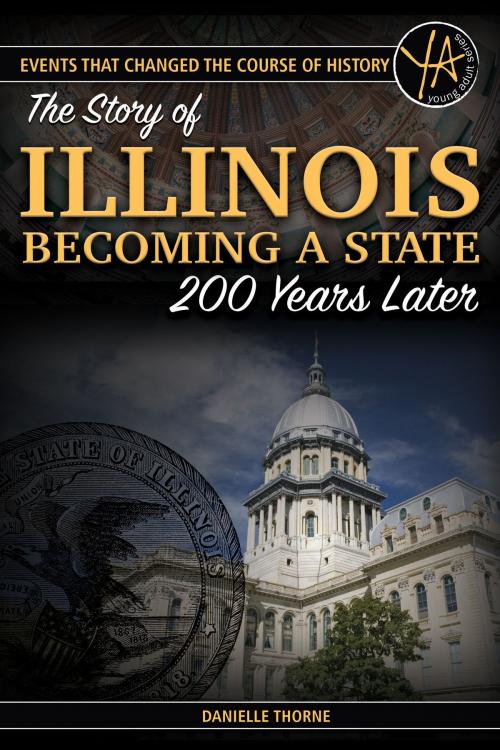Events That Changed the Course of History The Story of Illinois Becoming a State 200 Years Later
Kids, People and Places, History, Nonfiction| Author: | Danielle Thorne | ISBN: | 9781620234105 |
| Publisher: | Atlantic Publishing Group | Publication: | August 30, 2017 |
| Imprint: | Atlantic Publishing Group, Inc. | Language: | English |
| Author: | Danielle Thorne |
| ISBN: | 9781620234105 |
| Publisher: | Atlantic Publishing Group |
| Publication: | August 30, 2017 |
| Imprint: | Atlantic Publishing Group, Inc. |
| Language: | English |
Today, we think of Illinois as the Land of Lincoln, as the home of "the windy city" Chicago, and as the longtime residence of Barack Obama, our 44th president. But, 200 years ago, Illinois was the Wild West -- the frontier on the edge of the United States. It didn't have any major cities or any real influence over American politics.
Life in the area where Illinois is today was far from boring; it was fought over or claimed by the Indians, the French, the British, and even the state of Virginia.
Reports of fighting between settlers and Indians -- especially the 1812 Fort Dearborn massacre, where a group of men, women, and children left the fort and were ambushed before traveling two miles -- scared off many potential Illinoisans.
But Congress wanted Americans to take advantage of the area's wide-stretching prairie, which was great for farmland, and its waterways, which soon could be used to transport goods via steamboats. They let Revolutionary War and War of 1812 veterans purchase land for a steal. People began to trickle in, and the inhabitants of the Illinois territory started to clamor for statehood.
Let's take a closer look at how Nathaniel Pope, the territorial delegate in Washington, D.C., worked cleverly to help Illinois become the 21st addition to the United States of America.
Today, we think of Illinois as the Land of Lincoln, as the home of "the windy city" Chicago, and as the longtime residence of Barack Obama, our 44th president. But, 200 years ago, Illinois was the Wild West -- the frontier on the edge of the United States. It didn't have any major cities or any real influence over American politics.
Life in the area where Illinois is today was far from boring; it was fought over or claimed by the Indians, the French, the British, and even the state of Virginia.
Reports of fighting between settlers and Indians -- especially the 1812 Fort Dearborn massacre, where a group of men, women, and children left the fort and were ambushed before traveling two miles -- scared off many potential Illinoisans.
But Congress wanted Americans to take advantage of the area's wide-stretching prairie, which was great for farmland, and its waterways, which soon could be used to transport goods via steamboats. They let Revolutionary War and War of 1812 veterans purchase land for a steal. People began to trickle in, and the inhabitants of the Illinois territory started to clamor for statehood.
Let's take a closer look at how Nathaniel Pope, the territorial delegate in Washington, D.C., worked cleverly to help Illinois become the 21st addition to the United States of America.















